‘For a peaceful world we need educated people everywhere’
Aberdeen postgraduate student Ahmad Ali Shariati reflects on the value of scholarships and studying through the fall of the Afghanistan government as his family fled the Taliban

When Ahmad Ali Shariati was awarded the Chevening scholarship to study at the University of Aberdeen, it was an opportunity he wanted to grasp to make a positive difference in his home country, Afghanistan.
But when he set off for his studies in Scotland, he didn’t expect to be completing his dissertation through the fall of his country’s government and the resurrection of the Taliban which forced his family into hiding.
His experiences have served only to strengthen his commitment to the value of higher education. He shares his story and the experience of studying abroad while watching harrowing scenes from his homeland unfold.
Ahmad, a qualified lawyer, was working as a senior legal advisor with the Afghanistan national carrier ‘Ariana Afghan Airline’ but had a long-held dream of coming to the UK to study.
The expense of studying abroad meant this was impossible until he learned of the Chevening scholarship scheme, which supports outstanding emerging leaders from all over the world to pursue one-year master’s degrees in the UK.
Ahmad applied and was delighted to be accepted to study at his first-choice institution, the University of Aberdeen.
“I had friends who had studied at Aberdeen and they told me how impressed they were with the University and its courses. When I learned it had a 500-year pedigree of teaching law and one of the best law libraries in the UK, I knew it was the place for me.
“I chose to study International Commercial Law because of the University’s global reputation in this field and the brilliant team of experts and professors who are working at the Law School.”
Ahmad began his studies in September 2020 with the intention to take the skills he learned back to Afghanistan to make a positive difference.
“Despite studying between 2020 and 2021 during the Covid pandemic and lockdowns, I was made very welcome, he adds.
“I had a semester of in-person teaching which felt very safe with masks, ventilation and distancing.
“My second semester had to move online but I still felt very well supported. The Law School organised connected sessions for all masters’ students to help us keep in touch and build relationships. The University did everything it could to make the studying experience as positive as possible and I’m grateful for that.”
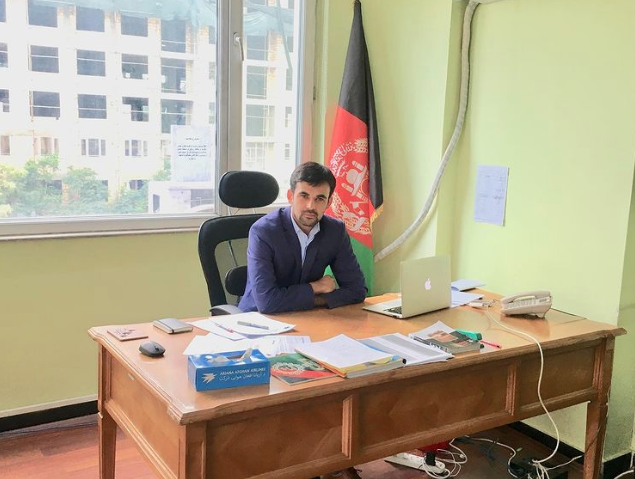
Ahmad at the Kabul offices of Ariana Afghan Airline
Ahmad at the Kabul offices of Ariana Afghan Airline
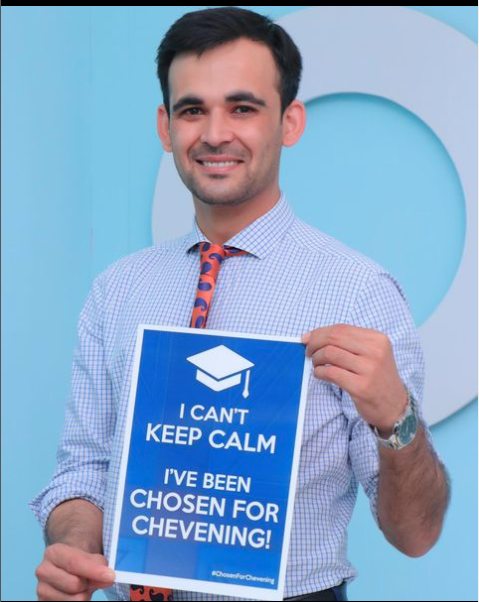
Receiving his Chevening Scholarship
Receiving his Chevening Scholarship
It was during the writing of his dissertation that Ahmad says the supportive environment offered by the Law School became essential.
“I was planning to submit my dissertation in August and then go back to Afghanistan,” he says. “But as I was writing up, the government collapsed and I felt powerless I as watched the awful scenes at airports unfold on the television.
“As a lawyer I had worked with different government agencies and institutions, and so I could not return.
“Fortunately, I was able to stay under the UK Government Afghan Resettlement scheme but things were much more difficult for my family.
“My father had worked prosecuting terrorists and now many of them were released from prison. My sisters were part-way through their own university degrees. Overnight all that came to an end and they were forced into hiding. All Afghan women were forced to stop all form of education. It was a very difficult time and I prayed for my country.”
Ahmad’s lecturers and fellow students rallied to support him and he was able to successfully finish his dissertation and complete his course in September 2021.
Ahmad was then offered a temporary role as a research assistant within the School of Law funded through the University’s Development Trust
Professor John Paterson supervised Ahmad’s dissertation and his subsequent research project. He said: “When I taught Ahmad online during Covid it was immediately evident that he was an enthusiastic and hardworking student. These qualities stood him in good stead as he worked on his dissertation in circumstances which I can only begin to imagine.
“It has been a real pleasure more recently to see Ahmad put his knowledge and skills to excellent use in the context of our research project – and to see him be accepted for PhD studies. I have no doubt that he has an immense contribution to make to his country – and more generally – in the years ahead. He is genuinely an inspiration to us all.”

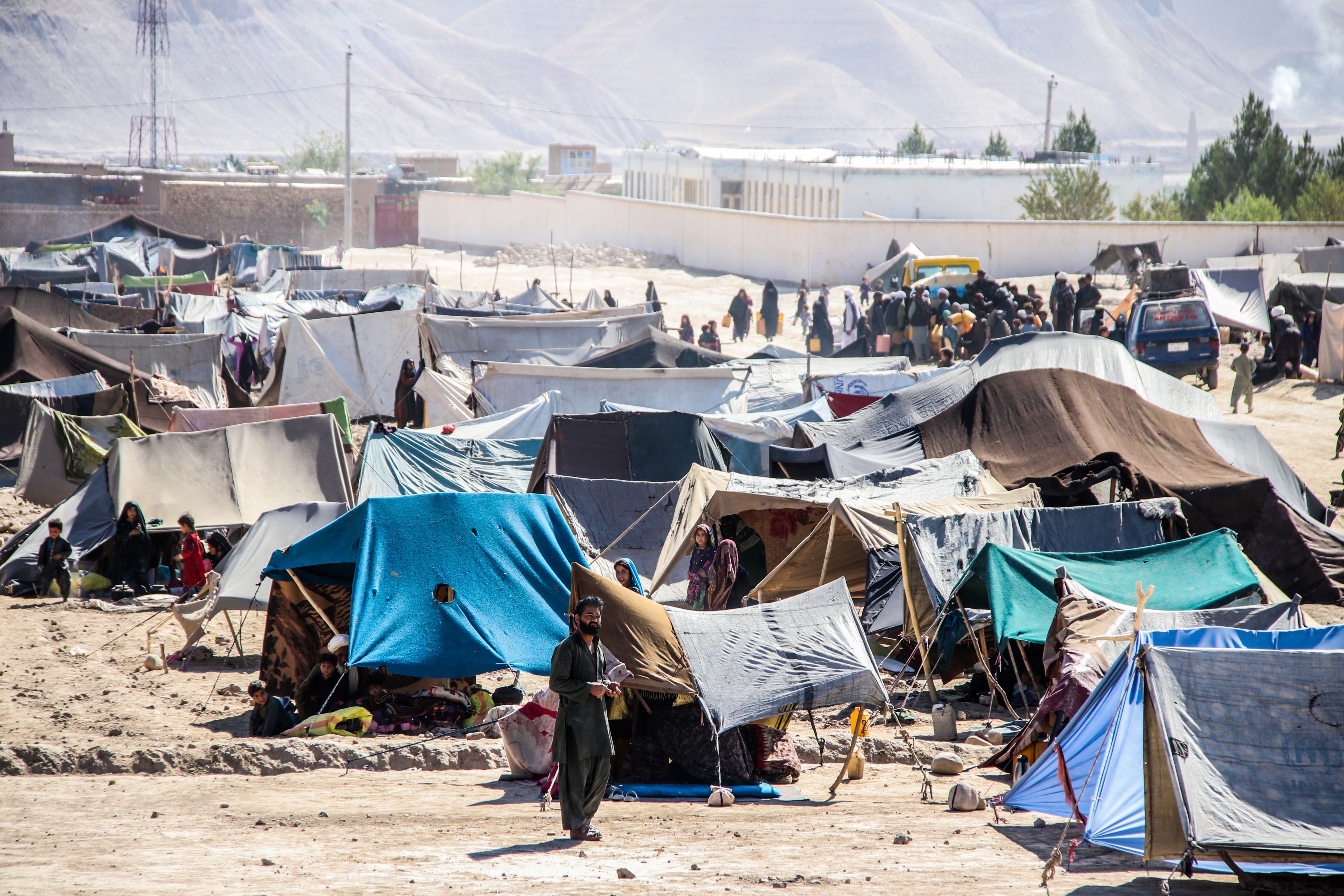
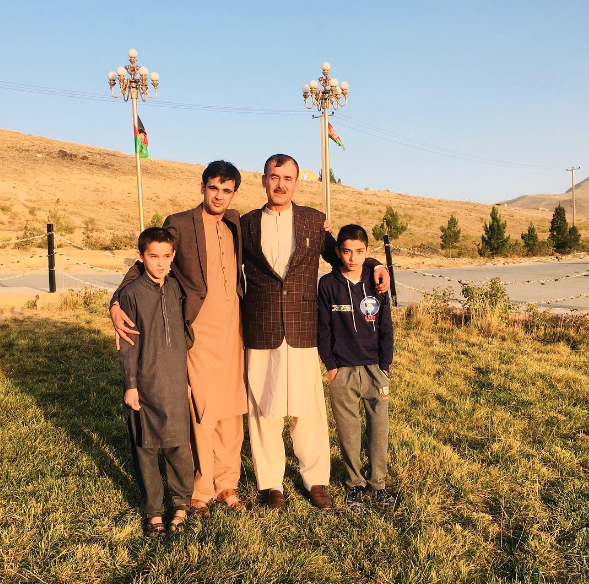
Ahmad with his father and younger brothers in Afghanistan where he hopes one day to return
Ahmad with his father and younger brothers in Afghanistan where he hopes one day to return
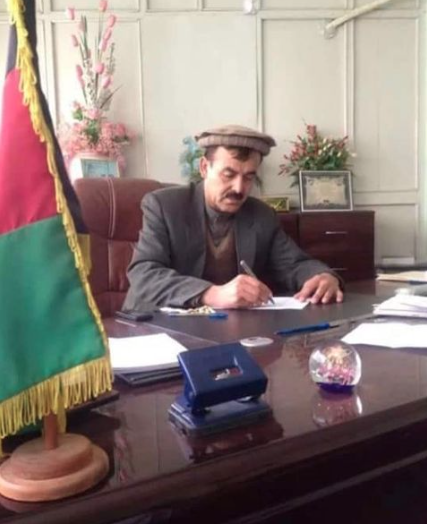
Ahmad's father at work before the collapse of the Afghan government
Ahmad's father at work before the collapse of the Afghan government
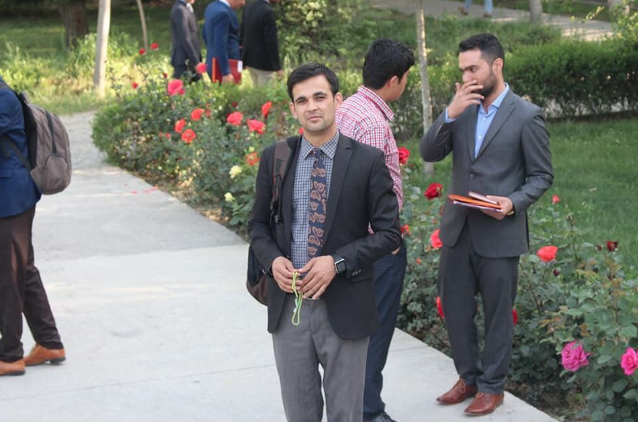
Ahmad at Khatam Al-Nabieen University in Kabul during his undergraduate studies
Ahmad at Khatam Al-Nabieen University in Kabul during his undergraduate studies
After two months in hiding, Ahmad’s family was able to escape and was able to resettle in Europe.
Despite the current difficulties in Afghanistan, Ahmad is holding onto his dream that he may one day be able to return.
He says: “When I understood that I would not be going back, I decided to use the opportunity here to build a meaningful life and I see the key to that as education.
“I have now been accepted onto a PhD at the University of Sussex which began in September.
“My time at Aberdeen has shown me that I want to teach law and to work in academia. My PhD subject has been influenced by the expertise here in energy law and I will be exploring the State’s legal responsibilities of greenhouse gas emissions in the energy sector in the context of international and domestic laws.”
“Before the collapse of the Afghan government I had been offered good opportunities to go back to contribute to Afghan society and to help others. That remains my long-term goal but until that is possible, I want to complete my PhD and, then, I hope I might one day teach law at Aberdeen to support students here in the same way I have been supported.
“I now consider that I have two homes – Afghanistan and the UK. I will always love my home country. My sense of identity and all my happy childhood memories are there but I am grateful to the UK, and particularly Aberdeen, for making me so welcome.
“After completing my dissertation, I travelled to other cities and although I enjoyed the experience, I was pleased to return to Aberdeen and start working with the University where I have felt so at home.”
Ahmad is a strong advocate for the value of international scholarships and hopes that the Chevening scheme will be opened up to Afghan scholars again in the future.
“Scholarships really do change lives, not just for the individual but in terms of what they can then give back.
“Having a master’s degree from a UK university is amazing for someone from Afghanistan. The dreams that I had in childhood were about how I could change life for my people but things haven’t worked out that way unfortunately.
“Eventually I hope I’ll be able to return to Afghanistan. I want to contribute towards women’s rights, girls’ education and human rights and to do something to address the many types of discrimination.
“I am not undertaking a PhD just for my own self-interest but because I want to make a positive impact in Afghanistan one day.
“International education creates important partnership between individuals and countries which are essential for good relations for trade and business.
“I am not a nationalist, I believe in the global world, but it will make me very happy to see the time Afghan people are able to live the lives they deserve.
“This is why scholarships are so important. Regimes change for good and for bad but for a peaceful world we need educated people everywhere.”
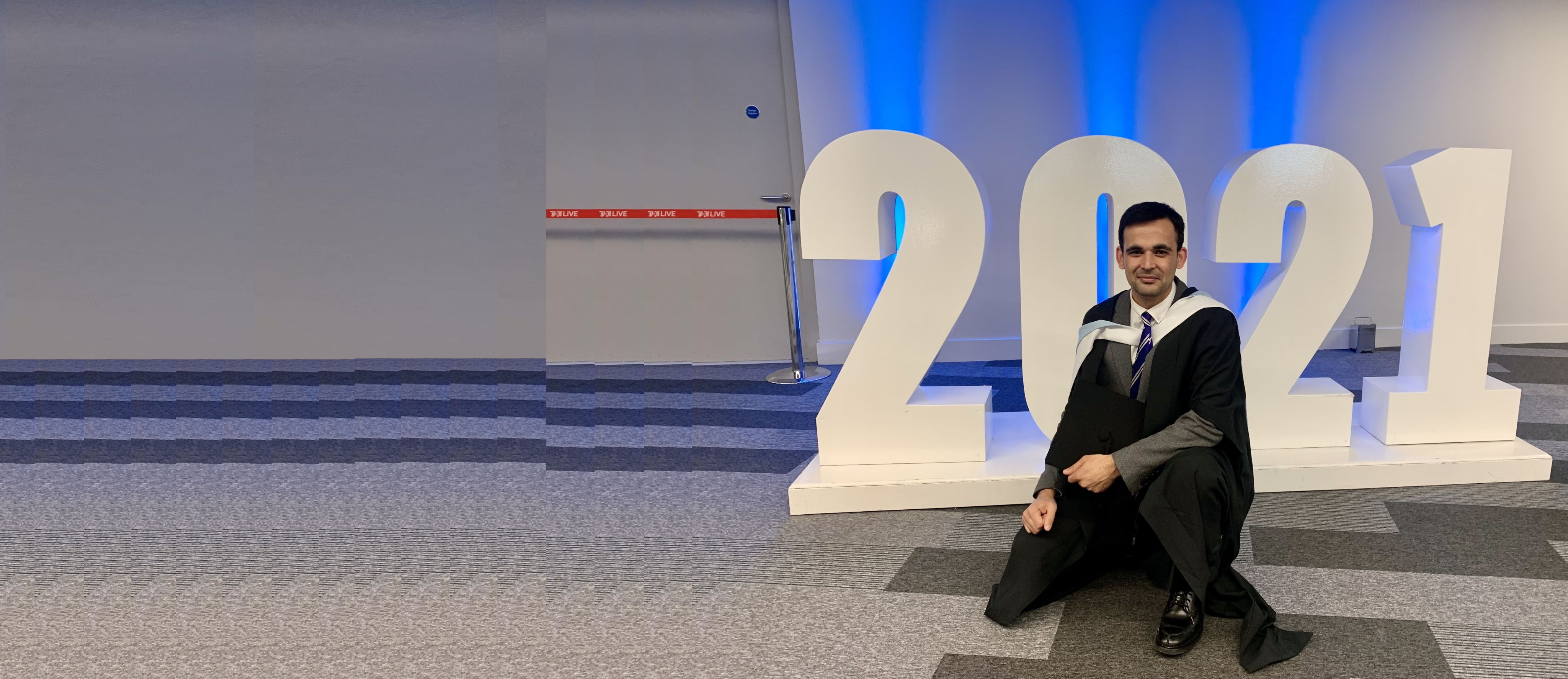
Additional Photos:
Taliban militants and civilians in front of Hamid Karzai International Airport, 17 August 2021 (VOA - https://www.pashtovoa.com/a/kabul-on-second-day-of-taliban-takeover/6005567.html)
Kabul, Afghanistan, October 10, 2021, Refugees living in a camp outside Kabul under the Taliban rule (Shutterstock)
Ahmad at his University of Aberdeen degree ceremony
